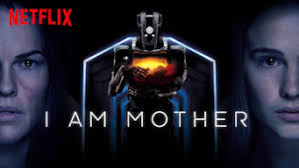Does Family Enhance Female Heroes?
The title of this post may get at least a few people upset, because it may smack of “patriarchy” to some, but my conclusion may not be quite what you’d expect. Note I changed what I planned to post today based on looking at what Mark Carver wrote yesterday (not for the first time). His post on Those Meddling Kids points out that families with children are often excluded from speculative fiction, some exceptions notwithstanding. And he’s right that while there are plenty of stories that feature child protagonists like Harry Potter and even Narnia (and teen protagonists in The Hunger Games etc.) and plenty of stories that feature adult protagonists who are married (though I’d say single protagonists are more common), a family of adults and children together is a relative rarity in speculative fiction, outliers like Lost in Space notwithstanding. No doubt there are loads of reasons this is true, but it occurs to me that separating kids from adults in fiction cheats characters from certain types of important interactions that may especially help female protagonists. Or at least some great speculative fiction stories have featured women bearing children and protecting them as major aspects of the story–and perhaps more stories should do so.
Why would the issue of having children be important especially to female characters? Well, in spite of living in an era in which more and more often the tiny, tiny minority of people who arguably could be either gender are treated as if they are role models for everyone, as if everyone could either be male or female according to inner desires and not according to biology (most people are clearly born either male or female, in spite of rare cases of congenital hermaphroditic conditions), women are different from men in that a woman with a healthy reproductive system can bear children, something no biological male can ever do. That’s a pretty significant difference and has profoundly affected the reasons why men have been warriors in many societies and women have not been–bearing and breastfeeding children takes a toll on a human body and raising kids takes decades of effort. So while most families in human history have worked a family business or farm in which dad, mom, and all the kids worked together most of the time, when a war came around, the men left and the women stayed behind. That system wasn’t deliberate oppression of women for the most part, it just was practical–somebody had to be at home and the one with the attached milk bottles was clearly the better choice if babies were in the house, as they usually were for men young enough to fight in combat. Even in societies in which women served as warriors (like the historic Sarmatians), women with children fought less often than women without children.
And most societies traditionally found stories of warriors more interesting that stories of ordinary life, including ordinary family life. We carry this notion of what makes an interesting story with us today, especially in speculative fiction. Hence the interest in women warriors in our genres on the part of people wanting to equalize the playing field between men and women. Because fighting in war has been a “male privilege” and we want to see women who fight! Such as in superhero stories, with more and more women in battle scenes!

From Avengers Endgame. Image Copyright, Marvel.
I happen to think warfare is a lot less fun in the real world that in fiction and am rather against the notion of pretending the use of force (even morally justified force) is something other than what it is. But I’m not against portraying women in combat in fiction, nor am I against women fighting in combat in the real world who able to perform physically at a high enough level, which does happen, but represents abilities only a minority of women are capable of. Nor am I against portraying alien species in which the relationship between male and female is different from our own so that the females may be the stronger gender (this works especially well with egg-laying species on Planet Earth), even though I’m opposed to the notion that gender in human beings does not almost always have an obvious biological basis. I think implying women can be men or vice versa is a bad idea, yet I’m not opposed to portraying women who are in a situation which allows them to fight.
Though instead of a story in which women voluntarily are allowed to fight alongside men, I think stories in which women are required to fight because they need to are more compelling. This is where inclusion of children benefits speculative fiction stories. Because generally speaking, women will fight for the lives of their children with an urgency unlike any other form of warfare.
Speculative fiction has already done this at times. While Ripley is an interesting character in Alien, where she winds up fighting a monster to save her own life and the lives of her crew, she’s even more interesting in Aliens, in which she’s fighting for her surrogate daughter, Newt. In that story, you would not have been able to substitute a male character in her position and get the same urgency, the same resonance and power, especially given Ripley fights the alien mother queen (which had clear parallels to queen ants and queen bees). And other alien movies played around with the idea of Ripley as the mother to the alien and what that would mean–even though those movies were not as good, you could not have put a male character in that position.

Image copyright: Twentieth Century Fox
The Terminator films likewise cast Sarah Connor as an ordinary woman who becomes extraordinary because of fighting (and preparing to fight) for the life of her son, John Connor. The character’s role as a mother was an essential part of what made her a warrior and fighter. (Terminator 2 was notably one of the speculative fiction films in which a child and parent worked together, even though the film kept them separated a great deal of the time.)
I recently watched a film made for Netflix named I Am Mother, which featured a female-voiced artificial intelligence/robot raising a girl as her daughter in post-apocalyptic environment (I originally planned to post on this movie, by the way). It’s an interesting story in part because of what it does and does not say about motherhood. I won’t say a lot more about it here, but the three main characters in the tale are all women, which was totally natural in the context of the story world. (I do recommend this movie by the way–I found it thought-provoking.)
While this post must at this point surely seem to be making a straight line argument in favor of writing women heroes who have to fight to defend their children, I’m about to deviate a bit. The Road showed a post-apocalyptic world in which a father rather than a mother fought for his son. And I would say the story was more powerful for the inclusion of a child, much more, than if it had been the story of a single man trying to stay alive in a world where everything had gone wrong.
So maybe Mark was right in his focus and I started off on the wrong track. Maybe the inclusion of parents in stories who are desperately afraid for the lives of their children is the phenomenon I’m talking about. I’ve seen more stories with women written in this position than stories with men made that way, but male characters can and do resonate when fighting for the lives of their children, especially when the man has been shown to be vulnerable, as The Road did well. (How nice of me to recommend The Road in time for Father’s Day. 🙂 )

Father and son in The Road. Image Copyright: Dimension Films
As I write this, I realize a reason why so many of the minority of stories that feature children don’t do what I’m talking about. While The Incredibles was lots of fun, a story that features parents with their children is much more powerful if the children are in serious danger, as opposed to cartoon danger. And generally speaking, writers and film producers have been reluctant to create fiction dark enough to give readers (or a viewing audience) the sense of the character’s terror that their child is about to suffer a horrible death. The Road did it and so did Aliens–and I recommend we do the same.
We Christian authors should not only write more stories that feature children, but more stories in which the children are in mortal peril, real danger, provoking real parental terror. Because while Christian-authored stories can be light reading for the whole family, they can also show real rescue from a providential God in times of genuine, terrible fear over the vulnerabilities of children. By the way, Lelia Rose Foreman’s Pacifist War (part of her Shatterworld trilogy) manages to capture that fear–which is part of what makes it a such great story.
What are your thoughts on this topic, readers? Do you agree that Christian authors would do well to include more families in which parents have to fight to save their children’s lives? If you enjoy these kinds of stories, are there examples I failed to include?










































I predict that Autumn will insert a note about female ninjas and Naruto, and that Notleia will say something about patriarchy!
Aw, darn, now I have to change my plans…. (Just kidding, I actually wasn’t going to talk about Naruto for once 😛 )
Darn. One strike. I’d better say something inflammatory about patriarchy before Notleia proves me wrong, too. : ‘ (
😛 I thought about tossing in a Fate Zero reference in my post that way you’d at least be sorta right, but my post was already long enough.
I thought Sarah Connor was pretty cool in the second Terminator movie, and had a pretty decent balance between caring for her child and being tough (and actually coming off as somewhat believably competent, which not every story with a strong female char actually does). Though it’s been a while since I’ve seen the film.
Motherhood and protecting one’s child can be a cool aspect for a female char, so long as it’s done in a way that’s reasonably realistic or at least makes sense for the char. If the woman’s life is only about the child, or the woman’s greatest emotional challenge in the story is not being able to have a child/losing a child, it’s less likely to work.
There are exceptions, but only if the author substantiates it and shows there’s more to the woman than her child. Arrival did a decent job of making the loss of a child important to the female main char without letting it overshadow the rest of the story/the woman’s character arc. The woman wasn’t just a mother, she was an accomplished linguist performing an important job for the army (figuring out how to communicate with the aliens that just landed on earth). The situation with her daughter was clearly very important to her, but was far from the only aspect to her life. The parts about her daughter were also very important to the philosophical question at the end of the film.
Even women that are obsessed with kids still have more to them. Like, my mom wanted kids really badly, but she was still had ambitions to be a teacher and whatnot. And back in kindergarten, I remember the teacher asking my classmates to share what they wanted to be when they grew up. One or two girls said that they wanted to be ‘a mom’. Obviously they meant a stay at home mom, specifically, which is totally fine. But, at the time it really surprised me. Like, I never really classified motherhood as a job or a dream, just something some people chose to be IN ADDITION to everything else. And most girls in the class still cited a specific career goal, like being a doctor or whatever. Soooo, if a woman’s primary/only regret seems to be that they can’t have kids or whatever, there’s a decent chance that the audience is going to feel at least slightly impatient with her, especially in a story that has war as a part of the plotline. Like, she could always adopt, and regardless there’s probably much bigger regrets to worry about.
Also, it would be interesting to see more female chars that struggle with motherhood. Like, instead of being natural soft nurturing people that already ‘just know’ how to handle their kids, let them struggle with relating to and teaching their children. In real life, women are going to struggle with that as much as men do. Even if men tend to be physically stronger and tend not to give off a nurturing vibe, that doesn’t mean all women are actually super nurturing either. There’s a lot of gray area in there, though. A lot of women might not be nurturing in the sense of being sweet people that are always ready to hug a sad child. BUT, they can be good parents from the standpoint of wanting to prepare their child for the world and be dedicated to their safety. Such a woman could get along with her child just fine, or have issues like ‘I love my kid but I have no clue how to get them to like me or listen to me so I just end up causing huge rifts in the relationship.’
Yeah, I think it would be good to show more mothers who struggle with motherhood in speculative fiction.
But I’m blatantly suggesting using the fear that parents feel for the safety of their children as a driver of emotional depth in stories. Children should be included, but their lives should be on the line. At least at times. I should have mentioned A Quiet Place–that movie did what I’m talking about really well.
Such family-based stories with realistic danger have loads of potential. At least I think so.
Yeah, I agree. And such stories would actually be more believable. In media, it’s understandable to put the kid chars in less danger, since there’s usually fewer child chars and it feels VERY uncomfortable/messed up to endanger them (same issue with girl chars). But, at the same time, children are often the most vulnerable and open to danger, so at least showing that vulnerability/likelihood of getting killed would help stories makes sense.
That said, a lot of popular scifi and whatnot is something that starts off as a ‘family friendly’ story, or at least something that kind of gets marketed toward kids later on. When someone wants to market toward kids, the main chars will often be younger and exemplify the fantasy of going on an adventure and having fun/being the hero without true stress and danger. The marketability isn’t the only issue at play, but I wonder if it’s influenced even the adult stories to some extent(by popularizing certain tropes). Even beyond that, though, there’s been many times when, as a kid, I’d watch things like Jurassic Park and feel very sure that the women and children had no chance of actually dying because it would mean killing off the only women and child chars in the film.
Yeah I agree that media marketed to kids can only put kids in so much danger as a general rule. And Jurassic Park is a great example of that. While you know the adult men may or may not make it, the entire structure of the story reveals the kids won’t be killed. It’s like amusement park terror for kids, being spun upside down, but held behind a safety bar.
It does seem especially dark to many people to put lives of kids on the line for real in stories, but it’s also quite true to life and it has been done plenty of times to great effect (though not nearly as often as leaving kids out of the story). I think Christian authors should take advantage of this situation and show heroic mothers (and fathers) fighting to defend their children.
Really my entire post winds up being a commentary on Mark Carver’s. He asked why children aren’t in stories more often and I followed up by saying they SHOULD be in stories more and this is HOW I think should be in stories–with their lives on the line and their parents fighting for them.
Agreed. And your article was a good follow up to Mark’s.
I think the fourth Jurassic Park had one or two very minor female chars get eaten, but, that brings up another issue. The movie wasn’t a great one and it was kind of hard to take that char’s death seriously as I would have liked. So, portrayal can be an issue. If the death doesn’t have emotional impact, the audience can suspect that the deaths are being used cheaply or even as a vague bid at comedy, which is usually not good.
I got just a teeny bit of that vibe off that film and felt annoyed by it, whether or not it was what the filmmakers intended. So…I dunno. I guess I’m just trying to add that Christian authors should make sure such deaths are both a natural consequences of the story’s circumstances AND that they are approached with a sense of genuine seriousness.
Thanks for the shoutout. Yes, A Shattered World features entire families and is contrasted by a society that hates families.
Family is a huge drive for me in my fiction. Regardless of whether it was a failure or not, Anna and the Dragon was almost a “meta” family tale, in which the mother had to literally wake up the masculine nature or father to give her child direction. Oddly, in the book I’m currently finishing, the characters are cut off with no help from family. But the one I’m starting will have a huge family who will act almost like a quasi army. I know it’s probably rude to discuss my own books, but this subject is a driving force for my writing.
There’s at least two angles I wanna hit this from.
1. But does biology dictate fate? If it does, how? Most gender essentialists seem to think that gender is the most important component of personality, but I think that factors like risk thresholds (which seem to be genetic) matter more. What does that mean for infertile women? Do we get to be honorary men, then, or just mere failures?
2. I think y’all are missing on the impact culture has on gender roles.
In a textile history book, it was suggested that women did more textile work than, say, smithing because spinning/weaving is easily interrupted and picked up again, whereas smithing is dependent on literally striking while the iron is hot. The author had a few more criteria, but I think that one is probably the most important.
Just to add a few things, one time I read part of a book (Call It Courage, I think) where in the main char’s tribal society weapon making was considered womens’ work, while in Island of the Blue Dolphins, the main char was afraid to make weapons at first because it was so forbidden in her culture for women to do so, though there were times when they would help with actual fighting.
There’s probably some differences between gender in terms of behavior(and talking about the possibility isn’t bad), but people probably overstate it way too much. And personality type probably matters more than gender. I mentioned Myers Briggs types before, which is the easiest way to describe it because that is what people associate the letter combinations with, though what I was actually looking into was probably more along the lines of Jungian Depth Psychology/Analytical Psychology. And a more reliable way of determining personality type is based off interaction styles and temperaments, not the MBTI test.
Anyway, yeah, based on all that, men and women can actually be pretty similar from a cognitive standpoint. Like, my Dad and I are both INTJs and very clearly have the same underlying cognitive functions. The differences between us have more to do with age and nurture aspects like life experiences.
Necessity often matters more than gender. A lot of Christian writers/bloggers condemn single career women for not being the ONLY role suitable for godly women (according to them.) SAHMs.
Due to the extreme lack of Christian men in proportion to women (even in youth groups) single women can either A. Starve. B. Mooch. C. Work. I guess 2nd Thessalonians condones C.
You probably can tell my pet peeve is not the “Patriarchy” but single bashing.
Yeah. Though it’s hard to take someone seriously if they look down on a single woman for providing for her children by having a decent job. Now days those people can usually be ignored.
I don’t know that many people who think gender biologically assigned and essential really think it dictates fate, or that it’s the most important component of personality. At least, I’ve not met anyone who said that. But I do feel my gender colors my viewpoint on everything. So, its impact seems more broad (like a blanket laid across all of my life) than deep. In that sense, it does affect everything in my life, because it’s one central part of my identity. That’s a pretty big deal, don’t you think?
Having a baby doesn’t make you a woman, just like having big muscles, drinking beer, growing a beard, or having sex with a woman doesn’t make you a man. That’s just the stupidity of culture assigning importance to things that aren’t essential. If you view gender as being biologically assigned, you automatically see the stupidity in those thoughts (so long as you take the time to actually THINK about it). It’s when you believe gender fluid and attached to our feelings and behavior that you more easily start blurring the line and letting culture dictate gender roles.
Cultural gender oppression works in the opposite direction, too. Pushing men to abandon things that seem “feminine,” like working in textiles or cutting hair. Otherwise, they’re expected to be gay.
That’s interesting on the textile industry. Makes sense…
Out of curiosity, how would you define the essentials of gender, then?
To me, more and more, the whole construct of gender outside of strict biology (which is irrelevant for everyday public life) is pretty much useless. Why would it be important to distinguish men from women at a glance?
Someone that’s, say, pan might not care. But if someone(regardless of their gender) is only attracted to men, they might appreciate being able to tell if someone is a guy or not without having to ask.
My ace side is showing, because I don’t really consider scoping out a date to be all that important in everyday life. Besides, it doesn’t really eliminate any possibilities of rejection. That dude could be not into people of your gender, or just not that into you in particular.
I don’t consider scoping out a date important either, and of course it doesn’t eliminate rejection, but I think finding a date, knowing what pronoun to use without having to ask, etc are part of the reasons why people might appreciate being able to tell what someone is. It’s an extra clue to how to interact with the stranger in question.
Gender neutral pronouns for EVERYBODY!
‘Cept those dang ancient German forebears didn’t come up with any neutral third-person pronouns that stuck, so we might have to borrow some in the fine English tradition of stealing all the loose vocabulary.
The Swedes use “hen,” and Japanese use “aitsu” when they’re being informal (depending on the circumstances, it could be construed as rude, but heck, Americans are casual af, it’ll be fine).
Since our only gender neutral pronoun things either sound awkward(‘they’ often sounds like it’s referring to multiple people) or sound offensive (in our culture people would hate to be referred to as ‘it’).
Finding something that actually sounds good and flows with English is the trick, though. That said, trying to implement that would invite a lot of pronoun Nazis to go a bit too crazy, which wouldn’t actually be a good thing. Especially since a lot of people might actually LIKE being referred to with gender specific pronouns.
That’s the thing about trying to completely neutralize some of these things, actually. Assigning neutral pronouns to everyone would step on a lot of people’s identities just as much, if not moreso, than our current system.
Being understood and known by people and referred to specifically is part of what makes friendship work. We enjoy being known and spoken to in a way that proves we are known. That’s why people care about what pronouns are used on them. It’s part of our identity. If you deny people what they see is their identity, or completely ignore it, they feel unloved. Hence, to care for someone is to get to know WHO they are. Part of that is gender. It matters, Notleia.
The only problem is that saying I’m a fruitfly instead of a person is considered a delusion. But saying I was born with a vagina when I have a penis isn’t? It’s mental illness. And yes, I know that some people talking about gender talk about it differently, have different definitions, whatever. They’re all wrong and I’m right and don’t tell me otherwise. 😉 Half joking, here, and I know you won’t agree and that’s fine. Anyways, I’m fine referring to people by gender neutral pronouns, as awkward and annoying as it is. I don’t want to anger people. But I think it’s pandering to mental illness to say gender is all in the mind.
No, it’s not all in the mind. A solid portion of it is social performance. 😛
lol
The fact that you use the term “gender essentialist” seriously tells some of us your opinions already.
At this point most regulars here can guess the jist of my opinions on gender. But do you have a better word for the concept of gender essentialism? “Cis-scum” is a bit rude, after all.
Smithing requires more upper body strength too.
Yeah, but it doesn’t require more upper body strength than women can develop. Might be more difficult, but it’s certainly possible. It makes me wonder how many females have done smithing, historically…
Not if you’re using primarily cast or mold methods, like a lot of bronzework seems to do. For a simple knife, all you’d have to do after casting the basic shape would be grinding/sanding an edge on it. Knapping arrowheads is also more about skill than strength.
Grinding ain’t exactly light work. Cast/mold methods are still heavy-lifting. But I think plenty women could do it. A lot of it has to do with mindset, more than anything else. (Purpose to be aggressive about stuff, and you can get it done, even if you’re not physically very strong.)
Notleia, I dropped a reference to the Sarmatians, the closest (that I know of) to any human culture producing a society of women warriors (Amazons were only legends). Sarmatian women (they lived in what is today southern Russian and were genetically and linguistically related to Persians) were all trained to fight in combat. But so were all the Sarmatian men.
But most the women who fought were unmarried–one of the Greek or Roman historians (might have been Strabo–I forget which one but am not bothering to look it up now) who wrote about Sarmatians said a woman had to kill three enemies before being allowed to get married. But after being married and having children, her days with the army were over (she had to take care of the children) with the exception of dire emergencies.
Yes, culture matters and my Sarmatian reference was meant to acknowledge that, but there has never been a human culture that totally flipped things so all women were out in combat and all men were home with the babies. Never.
Granted there have been pacifistic cultures where men would not fight at all and the average Sarmatian female would kick the butt of the toughest man out a member of one of those groups, but there has never been a culture in which women are generally more physically combative than men of the same culture. Never.
Culture matters, but to a degree, biology has always been destiny. Only people born as biological females have a uterus.
Perhaps the future of medical technology will change that, but tech certainly hasn’t changed it yet. There are no documented cases of anyone born biologically male bearing a child.
Perhaps this is why having children is less common among, say, female Marvel superheroes than being a mother is among ordinary women. Perhaps a general perception exists that the road to equality for women runs through not having children at all or only minimally caring for them if they do have children.
But the average number of children per woman has to be just over 2 in order to simply replace our species. Somebody has to bear children. That’s a fact that Christians are generally more realistic about than our society at large.
Thinking about women as childless as opposed to imagining women with children was part of the idea that inspired me as I began this post. But as you can see, I found myself shifting focus–it isn’t just women who are removed from their children far more often than is realistic in speculative fiction–it’s men, too. Fathers.
I wound up agreeing with Mark Carver more than I had intended to. I think Speculative Fiction could use more families–but not in a cheesy, cartoonish way.
Oh, so you are more or less a gender essentialist. Pity.
But dude, there are 7 effing billion people on the planet. We are not running out of people anytime soon. It’s the racist fearmongers who don’t want civilization with “other people’s babies” (per ol’ racist Rep Steve King) who screech about (white) women not childbearing enough. Most of human history took place with a global population only in the millions. We’ll be fine.
If fact, you can make an evolutionary argument that having some portion of the population being infertile helps support the existing children. That’s the theory why humans developed menopause (only a few other species like elephants and some whales have menopause).
Even amongst my generational peeps, I know I’m in the minority for wanting the childfree lifestyle. If you added up the stats, I think it’s no more than 25%, on the outside, of us wanting to be heathen childlesses. We’ll be fine.
I feel like I should specify that its not the biological womb-having bit that makes it gender essentialist, but the expectation of having a womb means that you’re obligated to use it to please society rather than yourself. Its like saying because we’re able-bodied we’re obligated to take in disabled people and care for them out of pocket. I think that would only guarantee a buttload of resentment all around.
Granted, being in the military, you probably hold the bias that being able-bodied means you’re obligated to risk death and/or dismemberment for the abstract construct of country, whereas my sense of obligation involves more effort towards diplomacy. Plus, I’m willing to bet that more people join the military because of lack of other employment opportunities than noble abstract concepts. But if the noble fiction helps them, I’ll let it.
I do think we have an obligation to kids and the disabled, but we can accomplish the goal better with tax-funded social programs. I believe in freedom of choice, as much as we’re able to accommodate.
Tax-funded social programs work against freedom of choice. You want to give away your cake and to eat it, too. Honestly, the biblical ideal is that out of thankfulness for God changing our lives, we voluntarily (happily) spend ourselves for other people. Not as an exaction or law.
For example, the Corinthians had promised a gift to the poor, and in 2 Corinthians, the author is encouraging them to live up to what they promised by saying this:
“11 So now finish doing it as well, so that your readiness in desiring it may be matched by your completing it out of what you have. 12 For if the readiness is there, it is acceptable according to what a person has, not according to what he does not have. 13 For I do not mean that others should be eased and you burdened, but that as a matter of fairness 14 your abundance at the present time should supply their need, so that their abundance may supply your need, that there may be fairness. 15 As it is written, “Whoever gathered much had nothing left over, and whoever gathered little had no lack.”
Verse 12 is key because it shows that it’s only out of readiness that people should be expected to give. It shows that it wouldn’t actually be acceptable if they weren’t gladly willing. That God wouldn’t want them to do it. It was because they had promised it willingly that he said, “I hope you continue to be genuine about it. Otherwise we’ll be made to look foolish, and you’ll have been proven dishonest, etc.” Christians should never expect other Christians to give just because they’re able. Same thing with the whole “having a womb” bit. Or taking care of disabled people, etc. The only way it works is out of thankfulness and willingness. Otherwise you’re right, you guarantee resentment, which spills over into violence and neglect.
This is why I’ll never push my wife to have more kids if she doesn’t want them/doesn’t feel ready for them. It’s not only foolish, it’s evil, unbiblical, irresponsible, and selfish. This is why people with musical gifts shouldn’t just be expected to donate their time to a church. Honestly, people in the church (me included) need to read their Bible more.
To quote Captain Awkward: “Sometimes the cheapest way to pay for things is with money.”
I DO want to support all the vulnerable populations, but I has only so much resources and spoons to give. So rather than biting off more than I can chew myself, I can contribute to a pool of resources that can do that more effectively. You might try to convince me that private charity is the more effective method, but nope, math points to the government being able to do the most good most effectively. American conservatives only point to private charity because they want to be able to control who gains the benefit rather than the government’s (attempt at) deliberate nondiscrimination.
Tho the funnier part is that those verses are most often used to support Christian communism.
Too bad the government relief organizations will all tell you the private relief organizations do it better and more efficiently. I’ve heard it from their own mouths. You really like building straw-men to knock them over…
I’m not against social programs through the government. There’s just times it’s not anywhere near as effective, and times the gov. is actually way more discriminating because of political junk. A both-and approach is better. The gov. actually loves working with private, Christian relief organizations, and vice-a-versa, because they know they need each other.
Yeah, that is funny. There’s plenty verses that go strongly against the idea of forced community in Scripture (which would fight against the idea of “Christian” communism). Much more than what I just quoted above. If necessary, I can copy-paste them here. Although to be true, the Bible is not anywhere near so individualistic as Westerners want to make it out to be.
It’s the social conservatives who insist on drug testing govt welfare recipients. I wouldn’t put it past a lot of churches to favor their own members or fellow Protestants over other groups. Catholic hospitals already refuse to do certain procedures or dispense birth control as much as they can get away with, even for things like PCOS.
Oh, specific example that occurred to me later. When state govts give federal funding from TANF or Family Planning to sectarian Christian programs that specifically promote abstinence-only ed. It’s also a horrible ROI because it does NOTHING to curb STI or teen pregnancy stats.
Considering that drug addicts are kind of known for committing crimes in order to fuel their drug habits, it makes sense to be cautious about just handing money to drug addicts. Like, if they’re that desperate for the drug, then who’s to say they will actually put money donated to good use rather than for their addiction?
That said, that isn’t the end of the line when it comes to people that think that way (regardless of being conservative or not). A lot of conservatives are going to be just fine with funding/founding rehabs, or donating food and toiletries to the homeless regardless of whether they’re on drugs or not.
My parents actually had a relative that was on drugs for a very long time. They’re in the camp of not just handing money over to people with addictions, but they still poured out a LOT of effort and emotion toward helping this family member. Of course there’s limits to how people can help, since drug addicts have to decide they’re ready to change. But, they did a lot of practical things, like taking her to rehab(multiple times), giving her places to stay sometimes, and being there with advice and resources. And…it helped. Just because conservatives are wary about giving drug addicts money doesn’t mean they are unwilling to help them.
Even if they were, it comes back to what I mentioned before. (Meant to reiterate this in my other recent reply to you, but I forgot) Conservatives flat out can’t control all or even most private charities. Even if you could make a case that they all discriminate against people with drug addictions or something, that doesn’t keep a bunch of liberals from going out and filling in the gaps conservatives leave behind.
Some southern state (prob Miss or Ala) spent multiple hundred thousands of dollars drug-testing all their welfare applicants and caught, like, less than 500 (and I’m willing to bet most of it was merely weed). There’s some preventable govt waste for ya.
Portugal has had waaaay better results treating drug addiction as a medical problem rather than a criminal one. Of course, Portugal also has “socialist” healthcare, with medical infrastructure able to support the influx.
Even if your assertions about American conservatives were true (and they aren’t true for many of that group) it wouldn’t matter. They mostly only have direct control over the private charities they run. Every charity(government run or not) will have it’s own specialties and rules over who it will help.
So even if conservatives were all super horrible bigots it wouldn’t have to matter because plenty of other charities can be made by people you approve of. Private charities ARE a pool of resources, but having a network of those allows for more freedom and innovation. That’s why it’d be better if we learned to develop that rather than shoving everything off to the government. (I’m not opposed to government run programs, but people seem to want to solve everything that way sometimes.)
Specialization is not the same thing as discrimination, but y’know what, it might be more effective to make the rest of social programs more lump-sum like Soc Sec than having half a dozen disparate programs chicken-pecking from different angles. The Soc Sec admin already has your income info, it would be more effective to share it with the IRS and relief programs than mailing in copies of your pay stubs five different times. Probably save admin costs, too.
But again, your solution is asking the government to care care of most/everything. Someone can make a database for private charities to use, or the government can give private charities a chance to opt in and receive that information that way people don’t have to mail things to five different places. That would help take care of that problem without trying to make most charity itself happen at the behest of the government.
The only thing is that contains private information, so when filling out forms people probably would need to be educated on what the system does and consent to it when they fill out their initial forms. Of course, if they don’t consent to it, they’ll have to be ok with mailing the information out to more places.
And yes, specialization is not the same as discrimination, but since people tend to do a pretty horrible job of understanding other people’s reasons for things, understanding intent, etc. there will be times when people don’t think they’re discriminating when they actually are, and vice versa.
Thing is, both sides of the issue come to conclusions about what they consider to be right and wrong, what they think the other side believes, etc and act on it. Like, my mom’s pretty decent when it comes to teaching and has actually been able to help some kids that come from troubled backgrounds and really need to have someone there for them. But, near the end of her teaching degree when she was getting evaluated and whatnot, she got marked lower than she probably would have otherwise just because the lady grading her disagreed with her on several issues. Buuut, later on, when judged by another evaluator, my mom got marked higher. My mom’s far from a perfect person, and maybe one can argue that one’s beliefs will impact their teaching(my mom’s probably would have been fine). But the evaluation was supposed to be based on how they performed in the classroom teaching students, not based on how well they match up with the evaluator’s beliefs.
Things like that permeate the public school system, at least in my area, so it makes it harder to get good teachers in the schools because of some of the antics that go on. Having the government run the schools doesn’t magically keep that stuff from happening, and it’s not even an issue of how much people pay in taxes. We certainly should have public schools for K-12th grade, but it’s pretty clear that it isn’t just conservatives that discriminate, and that the government doesn’t actually take care of everything well or prevent discrimination.
In fact, the government aspect is worse, because whatever beliefs and assumptions are made within the government(or by voters) will get implemented by laws and enforced.
What Autumn’s saying is right. The gov. discriminates all the time. It’s delusional to think that religion is the only motivator for discrimination, or that religious people always discriminate.
Yes, but you can bludgeon the govt system with votes and acts of Congress to change, which might be slow but is prob still more effective than expecting change from the Vatican or the SBC.
I dont see how private chicken-pecking would do much better, tho.
I’m not saying this with a rude tone of typeface, but you obviously are ignorant to how the actual non-profit sector works. Take your pride down a couple notches and go see people actually doing humanitarian relief work. It’ll humble you a bit. One tiny example, Convoy of Hope. They consistently beat out any of the gov organizations by 24 hours or more with their insanely quick response to disaster scenarios. They’re ready and there faster, which means saved lives. They dole out food and supplies to anyone and everyone. They do not discriminate. Period. That’s not private chicken-pecking. Guess who almost all their volunteers are? Conservative Christians. Over 600,000 of them. Over 300m meals served. Their Women’s Empowerment program is doing actual, real work to train and support females worldwide. They do free job fairs and medical help in the US for poverty-stricken urban areas. They’ve had gangs call truces and invited them to come to these events, where they give free mammograms, blood work, counseling, etc.
^ None of those facts don’t matter, however, when pitted against someone with an axe to grind (legit or perceived) against anything seemingly labeled “conservative” and/or “Christian.” Which, in many of your comments, notleia, just keeps happening. I guess we here at SpecFaith (being firmly Christian, and often what you’d call “conservative”) count as “the good ones,” which is why you keep coming back. 🙂 Thanks! But have you considered … maybe there are many other Good Ones too?
Madeleine L’Engle does a good job of showing families fighting evil together. A Wrinkle in Time was about love–not personal empowerment. I love the book and refuse to see the movie after hearing Oprah say they changed everything I valued in the book.
I also love the novel Till We Have Faces. Orual is a REALLY UGLY girl no guy can ever desire. As a princess she ascends to the throne of Glome when her dad dies and the kingdom is ready to plunge into chaos. It’s all an act of self sacrifice though. Orual’s only desire is to have a family and this longing is never fulfilled.
Because Orual failed to do what “all godly women automatically do” a lot of fundamentalists would dislike Lewis’s book. Because of Orual’s maternal longings feminists would hate it.
Nah, I like most of Till We Have Faces. I have more reservations about Psyche of the Ridiculously Perfect Personality than about Orual.
I loved Till We Have Faces. For whatever my opinion is worth. 🙂
Considering the point of this article is that children SHOULD be in danger in more speculative fiction and scifi films, I’m a bit surprised that no one mentioned BIRD BOX. Maybe most of you haven’t seen it. IDK. But Sandra Bullock plays a mom UTTERLY TERRIFIED of what would happen if her children (one her own, one from a fellow mother) take off their blindfolds and fall prey to the unseen monsters. I liked it.
Also considering other comments: the film was first recommended to me by a young newly-wed woman (a co-worker of mine) who told me that the only thing she’s wanted to be was a mom so she can raise her children the way her mother raised her. (Her dad died when she was 16.)
Hi Daniel. I saw Bird Box and liked it, though I found it too derivative of A Quiet Place. Yes, you are certainly right that Bird Box showed the kind of story I think Christian authors should consider writing more of.
I am Mother was fascinating, especially considering the controlling/manipulative aspect of the robot/mother in her attempts to re-establish the human race.
I’ve written the Children in Hiding trilogy, which explores a mother striving to protect her unborn child, and in the second book, her toddler, from the government bureau of population management. It’s hard to write about such issues without sounding preachy, though I have striven for subtlety.